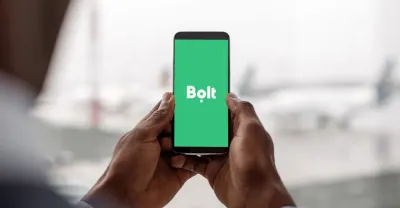By Kenneth Odero
Equity Bank will now include the new lending rules to mobile borrowers from its Equitel platform at the maximum rate of 14.5% annually on a reducing balance basis. This means that loans taken through Equitel will attract a monthly interest of about 0.65%, down from an average of 6%.
Equitel has become the primary lending channel for Equity Bank, accounting for 82% of loans, or about KES20.8 billion ($19 million) by end of June 2016.
The new lending law capping bank interests at 4% above the Central Bank Benchmark Rate, which stands at 10.5%, regulates applicable rates to bank loans and deposits. However, the credit facilities to which the amendments apply are those provided by banks or financial institutions.
Equity Chief Executive Officer, Dr. James Mwangi stated that the bank has interpreted the new lending laws to include all credit facilities extended to customers by financial institutions, meaning that the new rates will be applied to all credit and savings products.
"The way the law is crafted it says any credit offered by a bank or financial institution registered under the banking act can’t give whatever loan at more than 14.5 percent rate of interest. So, even for collaborations the law applies. That’s why we said whether its credit cards, mobile loans, microfinance, asset finance, consumer or even unsecured, interest rates have now been legislated and there is no window to manipulate the law." - James Mwangi, Equity Bank CEO
The new revisions will also see the bank's deposit products attract an annual return of 7.35 per cent, the deposit accounts specified to benefit from the revised rates are; school fees accumulation accounts, group accounts, fixed deposit accounts and customers saving with the Jijenge account.
Other accounts that do not follow in the above categories will be required to hit a specific threshold to start earning a return on their savings.
Equity Bank is the largest commercial bank by customer base in Kenya, with operations in Tanzania, Uganda, DRC, Rwanda and South Sudan. Prior to the rate change announcement, the bank charged between 2 to 10% interest per month on Eazy loan, compounded annually to between 24 to 120% per year. With the new rates capped at four per cent above the base rate set by the Central Bank of Kenya, the bank's loan portfolio is likely to increase, but margins will likely be slimmer.
Commercial banks are capitalizing on the convenience of issuing mobile loans to boost their incomes and cut down on the required paperwork. The loans attracted huge interest rates ranging from 60 to over 100 per cent annually, with the banks arguing that the mobile-based loans are not charged interest but a transactional fee and therefore should not be capped by the new lending law.
Commercial banks insist that new rate caps do not apply to mobile-based lending
Equity Bank's announcement that it will give credit at the same maximum rate of 14.5% annually to its customers, breaks away from a position held by other commercial banks offering mobile loans who maintain that their customers are not charged interest but transaction fee and therefore they do not come under the purview of the regulated interest rates.
The other banks involved in mobile lending are arguing that the new rate caps could see them lose billions in revenue should the new law include micro-loans.
Commercial Bank of Africa, which has partnered with Safaricom to provide the M-Shwari loan service, maintained that it will keep its fees unchanged at a flat rate of 7.5% per month.
CBA group managing director Mr. Isaac Awuondo affirmed that the bank charges a transaction fee and not an interest rate towards its customers. He however said it would pay M-Shwari deposits a return as per the new law which stands at 7.35%, or the equivalent of 70% of the Central Bank Rate.
Co-operative Bank, which operates a mobile-based lending platform dubbed M-Co-op Cash, charges a facility fee of 10% for loans of up to one month, 12% for loans of three months, and seven percent for its monthly business loan and secured personal loan.
The bank's financial year report for 2015 indicated that M-Co-op Cash registered more than 2.7 million users and supported over 12.5 million transactions, and its management is said to be weighing on the implication of the law before making any decision regarding rates.
Kenya Commercial Bank (KCB), which has partnered with Safaricom to offer loans through M-Pesa, has maintained that mobile phone loans do not fall under the provisions of the law and have retained the old pricing.
KCB has disbursed Sh.10.3 billion in loans to its customers through M-Pesa since the first quarter of 2015, and the current interest rates to the mobile-based loans stand at four percent monthly on a 30-day loan, three percent monthly for a 90-day loan, and two percent monthly for six months loan.
The law is also unclear on app-based lenders like Tala (formerly Mkopo Rahisi) and Branch, which also use M-Pesa to disburse loans and collect payments.
Equity Bank is likely to capitalize on this situation to boost its customer base. The bank operates Equitel as a Mobile Virtual Network Operator (MVNO), giving them an advantage over other commercial banks that have to use proprietary platforms like M-Pesa and Orange Money to disburse their cash.
In addition, the Equity Group chairman James Mwangi also pointed out that the bank had liquidity of in excess of KES100 billion (US$987 million) in its war-chest, which will be offered as additional lending over the next three financial years.






